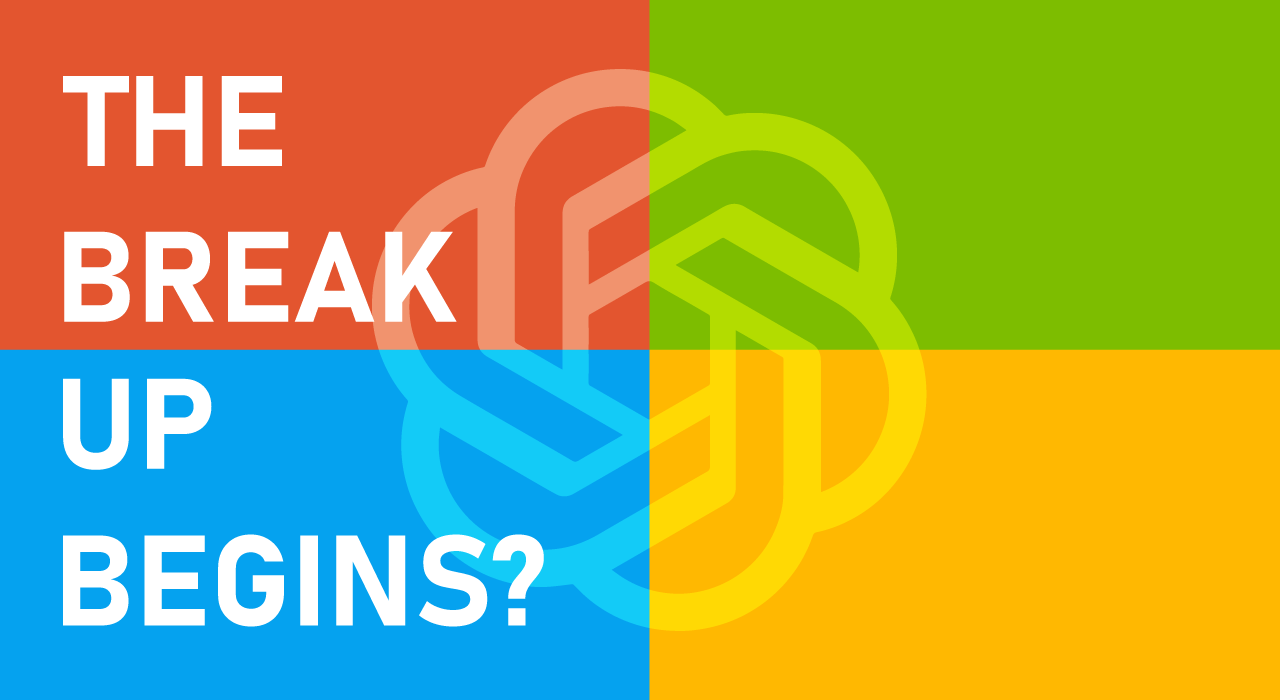
The once-robust alliance between OpenAI and Microsoft, forged in 2019 with Microsoft’s $13.75 billion investment, is unraveling under mounting strategic and operational tensions.
What began as a cornerstone of the AI revolution—powering OpenAI’s breakthroughs like ChatGPT through Microsoft’s Azure cloud platform—has now reached a critical juncture, with reports describing the relationship as at a “boiling point.”
This article explores the roots of the discord, key flashpoints, and potential implications for the AI industry.
At the heart of the rift is OpenAI’s push to transition from a nonprofit to a for-profit public-benefit corporation, a move requiring Microsoft’s approval due to existing agreements.
Microsoft holds veto power over this restructuring, and negotiations have stalled as OpenAI faces a year-end deadline to secure future capital.
OpenAI is seeking to reduce Microsoft’s influence, proposing a 33% stake in a reshaped unit in exchange for Microsoft forfeiting future profits—a deal that remains unresolved.
The partnership’s strain is compounded by OpenAI’s growing frustration with its dependence on Microsoft’s Azure platform.
OpenAI has explored partnerships with Google Cloud and Oracle to diversify its cloud infrastructure, driven by concerns over Microsoft’s computing capabilities and control over OpenAI’s operations.
Meanwhile, Microsoft is preparing for greater autonomy, testing AI models from competitors like xAI, Meta, and DeepSeek for integration into products like Microsoft 365 Copilot.
OpenAI executives have reportedly considered a bold move: accusing Microsoft of anticompetitive behavior and seeking federal regulatory review of their contract for antitrust violations.
This “nuclear option” reflects deep unease with Microsoft’s grip on OpenAI’s intellectual property (IP), including access to technology from Windsurf, a $3 billion AI coding startup acquired by OpenAI in April 2025. Windsurf’s technology competes directly with Microsoft’s GitHub Copilot, and OpenAI is keen to shield its IP from Microsoft’s reach under existing partnership terms.
Microsoft’s exclusive rights to host OpenAI models and its 2020 license for GPT-3 have further fueled tensions.
OpenAI wants to market its products directly to customers and work with other cloud providers, while Microsoft seeks to maintain its strategic advantage in AI and cloud computing.

Grammarly is an AI-powered writing assistant that helps improve grammar, spelling, punctuation, and style in text.

Notion is an all-in-one workspace and AI-powered note-taking app that helps users create, manage, and collaborate on various types of content.
The partnership has grown increasingly competitive as both companies develop rival AI offerings. Microsoft’s GitHub Copilot and OpenAI’s Windsurf-powered tools vie for dominance in AI-driven coding, intensifying the stakes.
OpenAI’s acquisition of Windsurf was a strategic move to bolster its capabilities, but it has heightened Microsoft’s concerns about losing influence over OpenAI’s technology.
Additionally, OpenAI’s courtship of new investors, such as Japan’s SoftBank Group, signals its intent to reduce reliance on Microsoft.
In response, Microsoft is diversifying its AI portfolio, integrating third-party models to lessen its dependence on OpenAI’s technology.
Tensions have been simmering for years. In 2023, some speculated that Microsoft strategically positioned OpenAI’s board to face financial pressure, tightening its control.
By early 2025, reports confirmed Microsoft was no longer OpenAI’s exclusive cloud provider, marking a shift in the partnership’s dynamics.
Public statements from Microsoft CEO Satya Nadella have downplayed the discord, emphasizing the partnership’s strength and Microsoft’s earnings from ChatGPT usage.
However, these assurances contrast with OpenAI’s reported frustrations and strategic maneuvers.
The outcome of this dispute could reshape the AI landscape. If OpenAI pursues antitrust action, it may trigger regulatory scrutiny of Microsoft’s dominance in cloud computing and AI, potentially altering industry dynamics.
A formal split or redefined alliance could impact how startups and tech giants collaborate, influencing innovation and competition in AI development.
Microsoft’s stock, with a projected 5.59% upside per GuruFocus estimates, suggests investor confidence, but a public dispute or regulatory probe could shift market perceptions.
For OpenAI, achieving greater independence could unlock new partnerships and growth opportunities, but it risks alienating a key ally in Microsoft.
The OpenAI-Microsoft partnership, once a symbol of AI innovation, is now a battleground of competing visions.
OpenAI’s drive for autonomy clashes with Microsoft’s desire to maintain control, with IP rights, cloud infrastructure, and corporate structure at the center of the conflict.
As negotiations falter and antitrust threats loom, the resolution of this rift will have far-reaching consequences for both companies and the broader AI ecosystem.
Whether the partnership evolves or fractures, its trajectory will shape the future of artificial intelligence.

